With friends like these … ties still ‘wary’ with China
Li Qiang has committed to a new defence hotline with Canberra and sealed a raft of agreements with Anthony Albanese, who declined to say whether he trusted his Chinese counterpart.
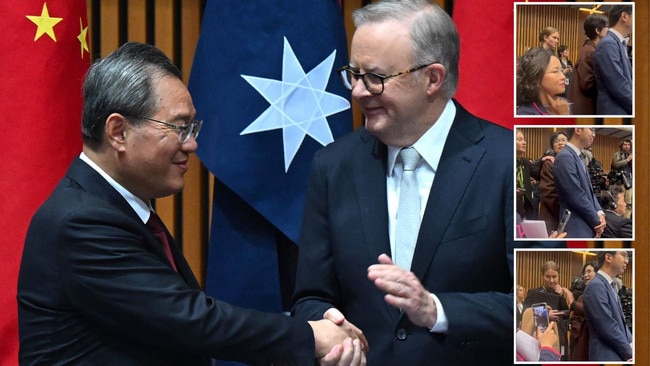
China’s No. 2 leader, Li Qiang, has committed to a new defence hotline with Canberra to avoid military mishaps and sealed a raft of agreements with Anthony Albanese on visas, trade and climate, in the first visit to Australia by a senior Chinese leader in seven years.
But despite declaring bilateral relations were “on the right track”, Mr Li’s visit was marred by members of his entourage, who stood over Sky News journalist and former Chinese political prisoner, Cheng Lei, trying to prevent her being seen in television footage.
As Chinese propaganda outlets praised the Prime Minister for demonstrating Canberra was not “under the sway of Washington”, Mr Albanese said he had had a “positive” meeting with Mr Li, but declined to say whether he trusted his Chinese counterpart.
“We have differences of opinion, but it’s important that we be able to express those; that we’re able to be constructive about it,” he said. “So, for example, one of the very practical measures that we spoke about was improving military-to-military communication so as to avoid incidents.”
Mr Li said their talks showed “this relationship is on the right track of steady improvement and development”. “We also had a candid exchange of views of some differences and disagreements and agreed to properly manage them in a manner befitting our comprehensive strategic partnership,” the Premier said.
Mr Li was treated to a red-carpet welcome with a 19-gun salute and full honour guard, as an estimated 500 human rights protesters accused the Chinese regime of murdering Uighurs, Tibetans and Falun Gong practitioners, and crushing freedoms in Hong Kong. Scuffles broke out between the protesters and a similar-sized crowd of Chinese patriots, who were summoned to Canberra by Beijing-backed community associations with offers of a free trip to Canberra. Police said one person was arrested but no charges were laid.
Mr Albanese hailed the signing of five memorandums of understanding which are yet to be made public, including one to “enhance” the operation of the nations’ free trade pact, which was ignored by China during three years of trade bans against Australian exports. Others pledged co-operation on the economy, climate change and research.
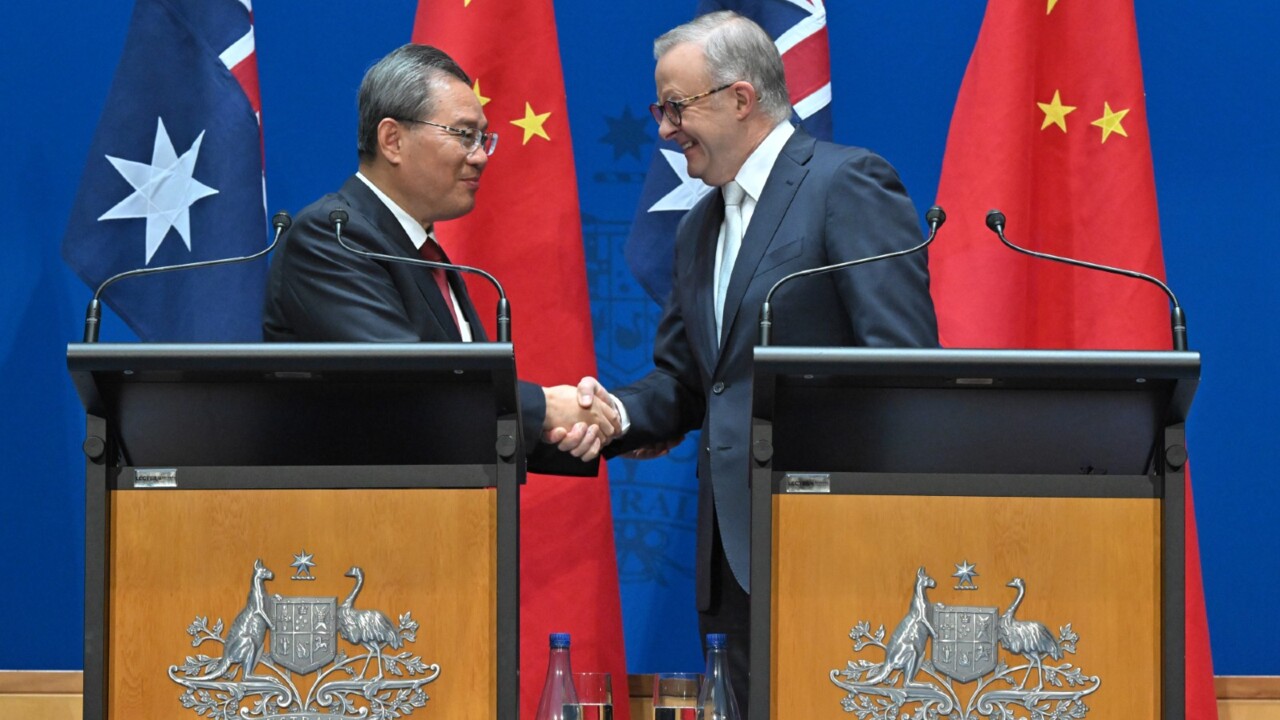
Mr Albanese said the agreements would “continue to shape and drive our practical co-operation as we continue the process of stabilising the relationship”.
Amid a slump in visitor numbers following the Covid pandemic, Mr Li announced Australian travellers would join New Zealanders in getting visa-free entry into China.
The leaders’ commitment to improved communications between the Australian Defence Force and China’s People’s Liberation Army follows a string of unsafe interceptions by Chinese warships and fighter jets that have placed Australian personnel at risk. Mr Albanese, who raised concerns over the PLA’s conduct in international waters and airspace, said details of the agreement were to be worked out.
The leaders also agreed to a “bilateral maritime affairs dialogue”, amid Australian concerns over Beijing’s unfounded claim to almost all of the South China Sea. The commitments came as a Chinese vessel collided with a Philippines ship near the disputed Spratly Islands, amid a campaign of harassment by Beijing.
Mr Albanese said he covered “the full range of Australia’s interests” during his meeting with Mr Li, including the plight of jailed Australian writer Yang Hengjun, and Chinese interference in Australia’s political system. Mr Li refused the offer of a joint press conference with Mr Albanese, but made a statement to the media standing alongside the Prime Minister.
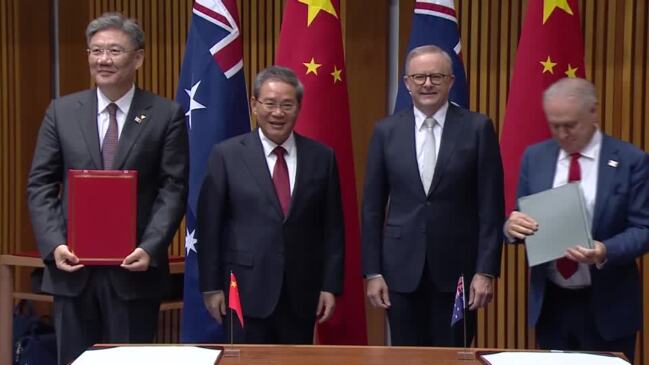
Moments ahead of the address, two Chinese officials moved to block television cameras from capturing footage of Cheng, a former journalist with China’s state-run CCTV. Australian officials resolved the standoff, after heated discussions with their Chinese counterparts. Cheng said she felt sorry for Mr Li’s minders, saying they were concerned about “keeping their jobs and career security”.
“Personally, I wasn’t hurt. I just found it amusing that they have shot themselves in the foot,” Cheng said.
Asked later about the encounter, Mr Albanese said he wasn’t aware of what occurred, but declared “it’s important that people be allowed to participate fully”.
Opposition home affairs spokesman James Paterson said the Prime Minister’s response to the incident was “totally inadequate”. “It is reminiscent of the Prime Minister’s behaviour after the incident involving HMAS Toowoomba in the East Japan Sea, when Australian navy divers were sonared,” Senator Paterson told Sky News.
Mr Albanese was applauded in an editorial in Beijing’s most authoritative English language masthead, China Daily, for “taking steps in the right direction” and demonstrating that “Canberra can balance relations with Beijing and Washington”. China Daily contrasted Mr Albanese’s approach with that of his predecessor, Scott Morrison, who it said had been “under the sway of Washington”. The masthead said Canberra had already demonstrated it was “not willing to unreservedly follow Washington’s lead”, after expressing “critical views” of new US tariffs on Chinese goods.
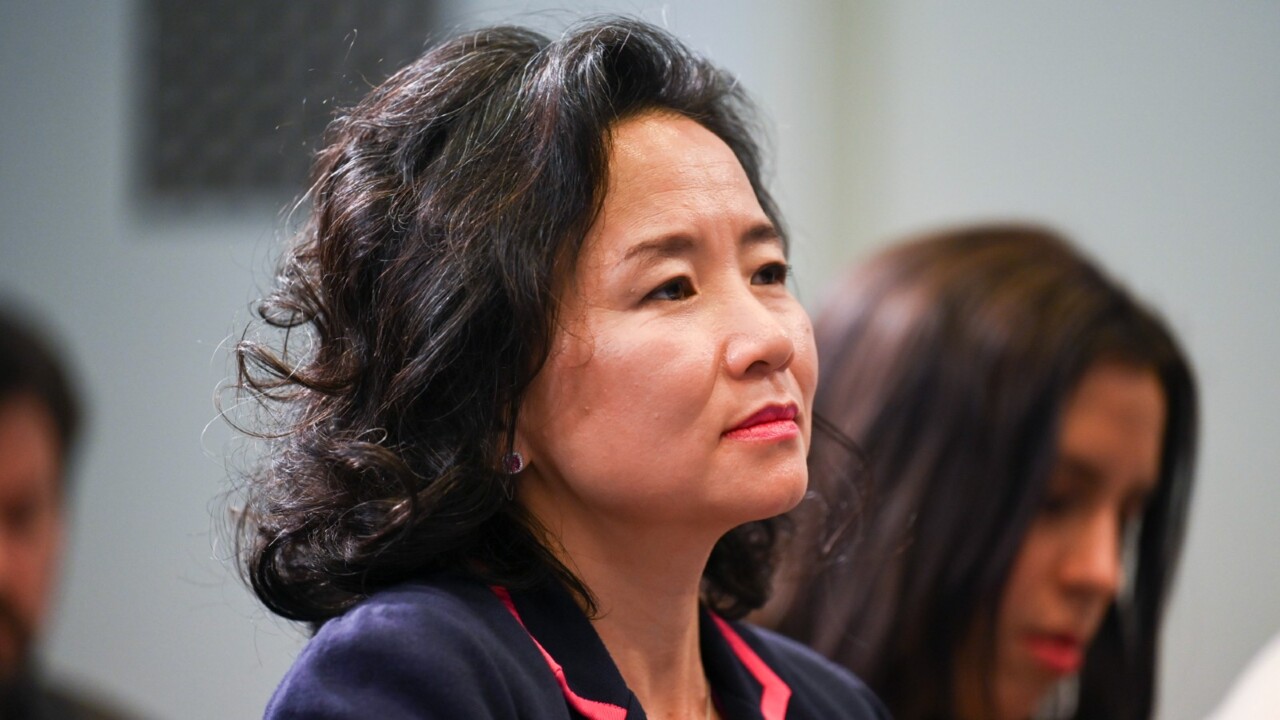
Peter Dutton, a critic of Chinese coercion and foreign interference, was upbeat on the prospects for an improved relationship between the countries.
“In our offer of hospitality today – and your acceptance of it – I believe that there is hope: hope that tensions of recent years can ameliorate; hope that we can reinvigorate the constructive spirit which defined our signing of a free-trade agreement in 2015,” the Opposition Leader said in a lunchtime toast to the Chinese leader. “Citizens across both of our countries share aspirations for peace and prosperity, for themselves and of course, their families.
“In pursuit of those aspirations, we have a responsibility to ensure that all engagements between our two countries are conducted with due care.”
Mr Li and Mr Albanese flew separately to Perth for talks with Australian and Chinese business leaders on Tuesday. The Chinese Premier will also visit the part-Chinese-owned Tianqi lithium processing facility at Kwinana, and a Fortescue Metals Group hydrogen plant.
Outside parliament, Tibetan community spokesman Tsewang Thupten said he was disappointed at “the red-carpet welcome while human rights are being swept under the rug”. He called for Australia to implement sanctions against Chinese officials involved in the repression of the country’s minorities.
Ramila Chanisheff, from the Australian Uighur Women’s Association, said the government was putting “panda policy before human rights”.
Additional reporting: Will Glasgow


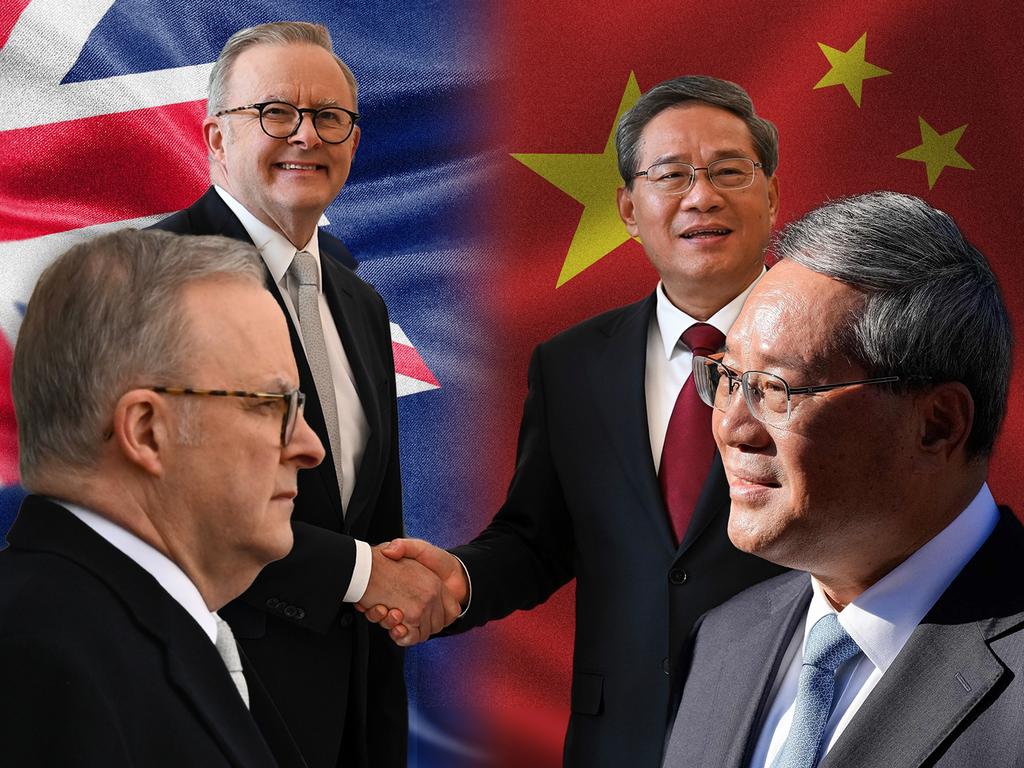
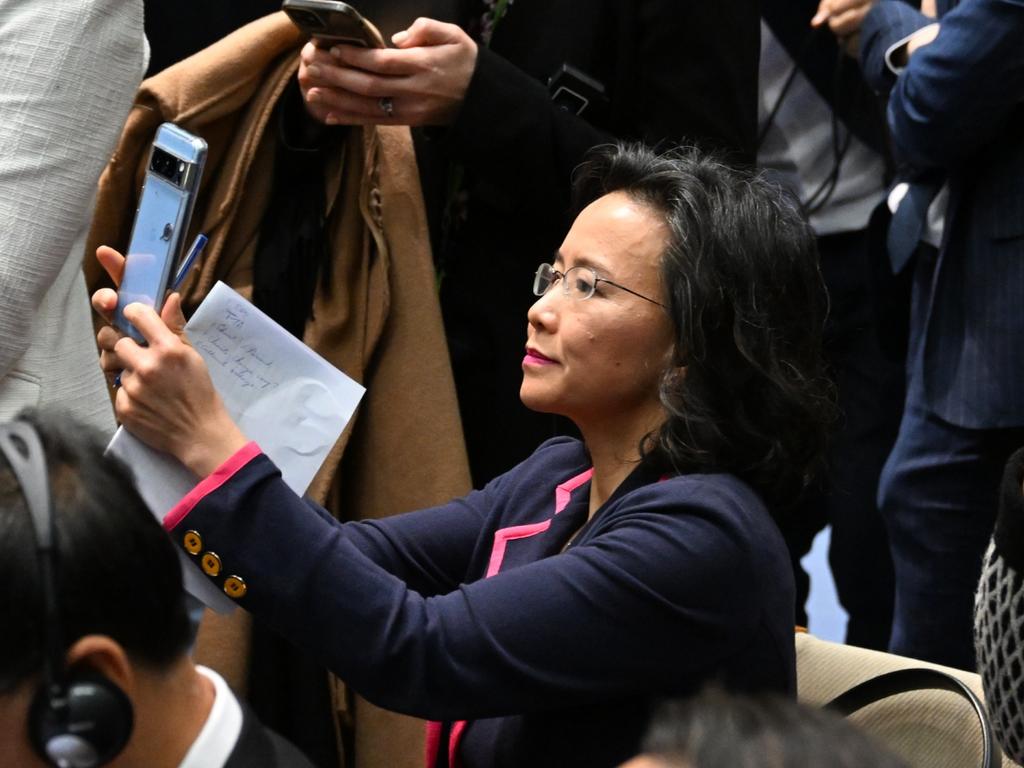
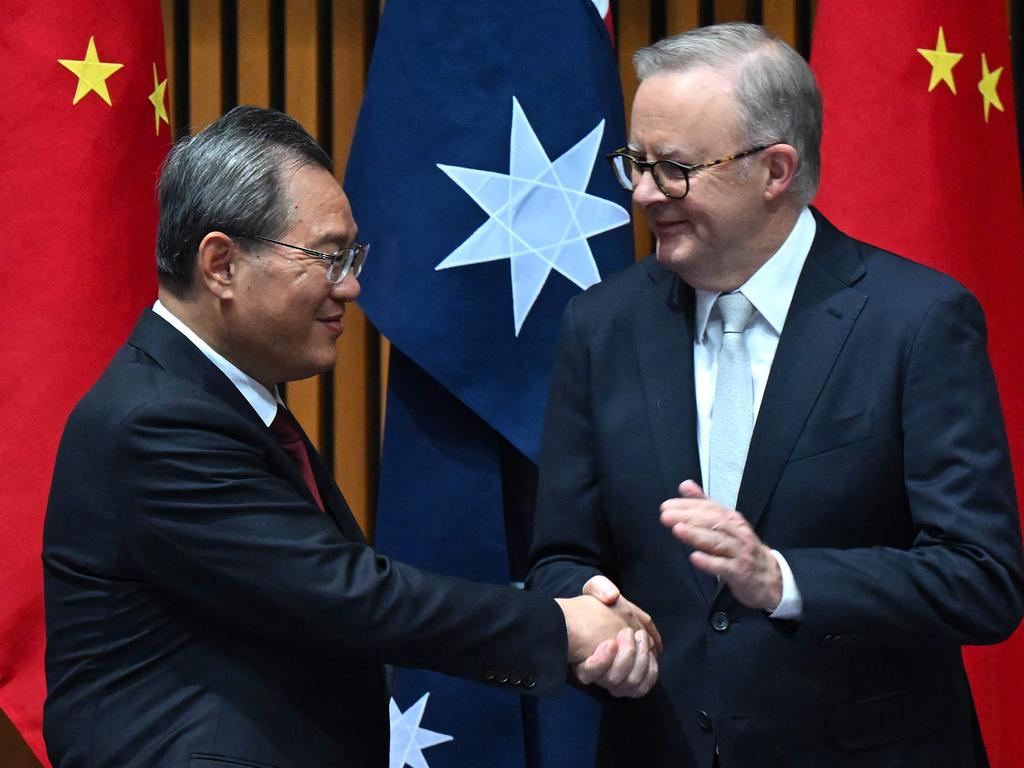
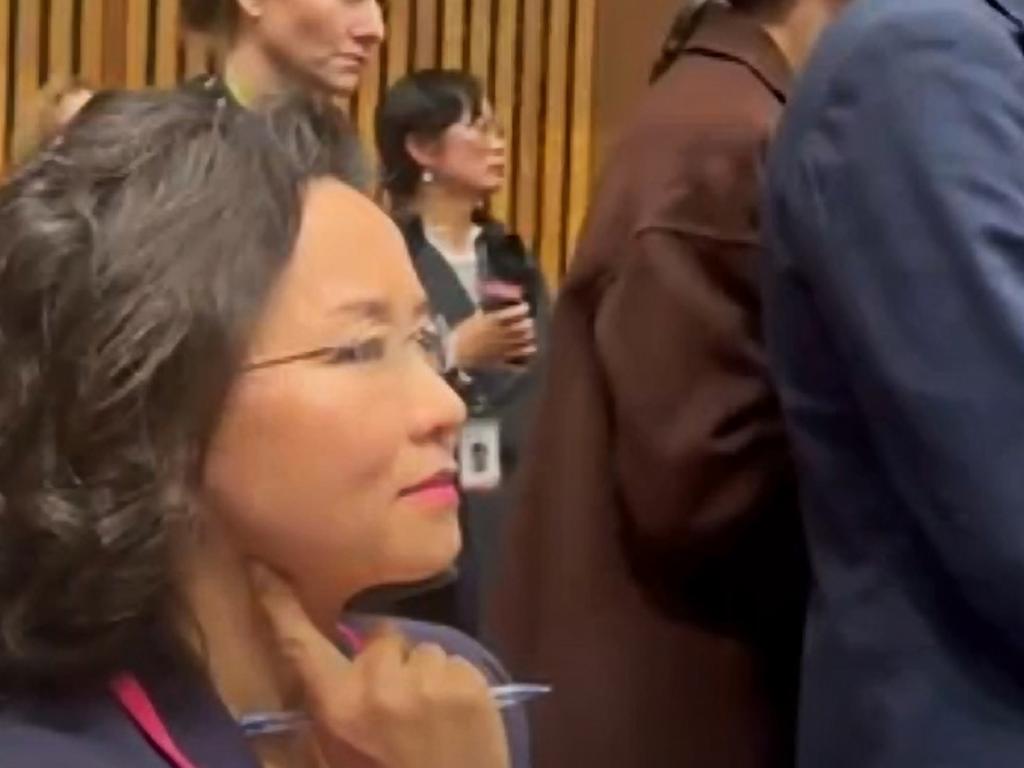


To join the conversation, please log in. Don't have an account? Register
Join the conversation, you are commenting as Logout